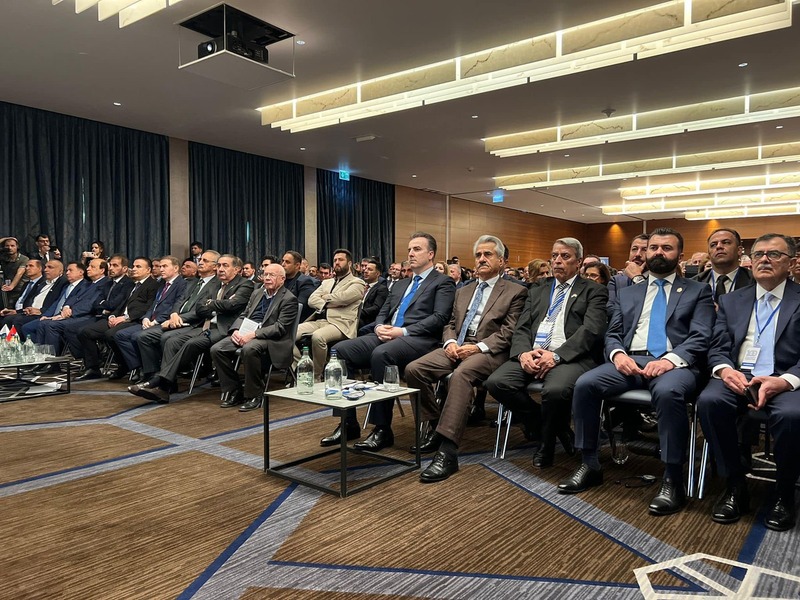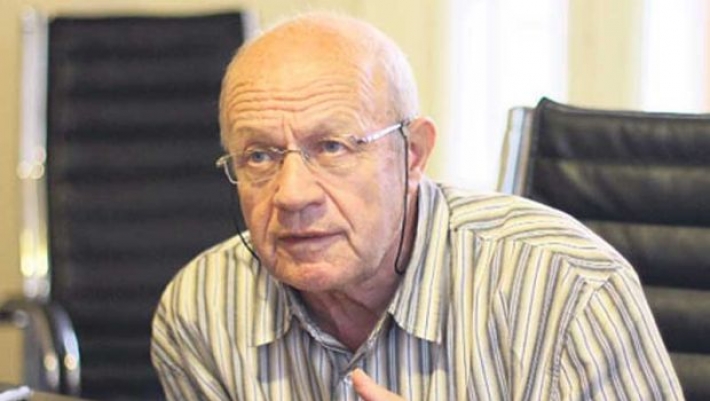The Lausanne Conference for Kurds and Turks is described and evaluated differently.
The Turks consider the Lausanne conference a coup for Turkey، but the Lausanne conference brought slavery to the Kurds. The situation was the same for the Assyrians and Syriac.
These relationships can be described and evaluated as follows;
After mid-1922، western countries، and above all، the British، who had won the First World War، gave up the Ottoman government completely. After the conference of Arzurum and Sivas, TBMM (The Great Turkish People Council) took power in Ankara and was invited to the Lausanne Conference. The Kurds who had participated in the Siver conference two years earlier in 1920 were not invited. One of the most important reasons for establishing this council in April 1920 was that a month earlier the British had dispersed the representatives of the last Ottoman Council and dissolved it; those representatives who separated from the Ottoman Council contacted the TBMM.
At that time Kurds were the majority of Kurdistan geography which was under the rule of the Ottoman Empire and stretched its borders from the South to Suleimani, from the North to the Caucasus, from the West to the west of the Euphrates River, and from the East to the banks of Van Lake. This geography was not less than the geography occupied by the Turks and the population was also the same as the Turkish population.
When the name of Turkey was added to BMM it changed into TBMM. Until the Lausanne Conference, there was no other government outside the TBMM and only a council government existed. In the Lausanne Conference it was decided that the entire Anatolian region, Armenia, and a large part of Kurdistan should be placed on this council and three months later in October 1923, the Turkish state was established. Although the name "republic" was added to its name, no position was specified for the Kurds. We will discuss two matters in this regard as reasons.
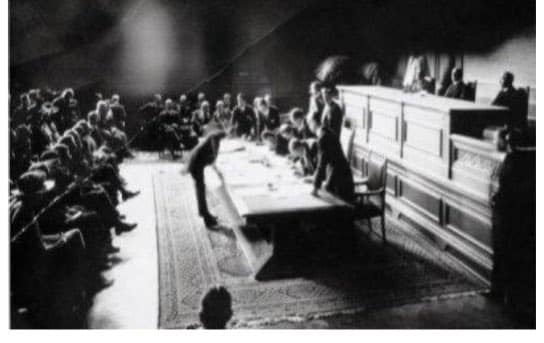
What's the main problem?
The main problem of Kurds/Kurdistan is the division of Kurds and Kurdistan. After World War I, this was the most important stage and process that was created in the Middle East and the north of Mesopotamia. In every part of Kurdistan, the policy of destroying the Kurds and Kurdistan on the land, and in the hearts, language, and minds of these people has been taken place. For instance, in Turkey, this policy has been implemented consistently. Even if it got weaker at some points, during the authority of monopoly powers it has been continued without any privileges.
After World War I, the Arabs were also divided but they ended up with their own distinct states. Nowadays, there are 22 Arabic states from the Gulf of Basra to the Persian Gulf, including the Arabs of Palestine. Due to this, the content and purpose of the Arab-Kurdish division are different.
The Sykes-Picot Agreement
In April 1916, a secret agreement was reached between the imperialist powers of the time, Great Britain and France under the name of Sykes-Picot. The Russian Empire later joined the agreement. This secret agreement was revealed by "Trotsky" in the October Revolution of 1917. Later the Bolsheviks withdrew from this agreement. Despite this, Britain and France were able to implement this agreement after World War I. The north region of Mesopotamia which was under the authority of the Ottoman Empire and their lands in the Middle East (Kurdistan Land) was divided between Britain and France.
Iraq, Jordan, and Palestine became a part of Britain, and mandate administration (Intidab or Qayyum) was established. Syria and Lebanon on the other hand, became a part of France's Qayyum administrations which could be called colonies.
In my opinion, the most significant and main question here is why Kurdistan wasn't established.
Although at that time Sheikh Mahmoud Barzanji in the South part of Kurdistan told the British: "I am Kurdistan King. Accept me as the king of Kurdistan", not only the imperialist powers did not establish an independent Kurdistan, but they also avoided establishing a colonial Kurdistan.
The Kurds and Kurdistan were divided by the cooperation and unification of imperialistic superpowers of that time, Great Britain and France, and the two old states in the Middle East, Turks, Arabs, and Persians. We cannot ignore Kurds' mistakes at this stage. During the Sykes-Picot agreement, several meetings were held between Britain and France. In the initial meetings, it was decided that the Badinan and Barzan regions would be given to France as parts of Syria. This division has undergone a special process; at first, Kurdistan was divided into four parts North, South, East, and West, and later the South part got divided once again internally. However, as we mentioned earlier, the southern part fell under British authority.
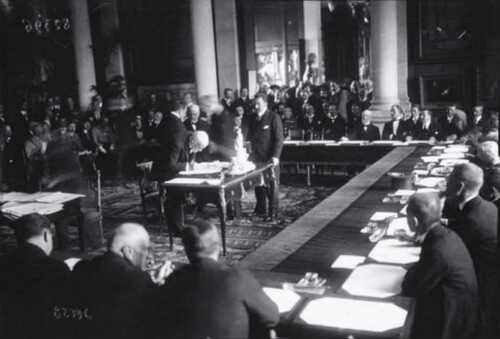
The table on which the Lausanne agreement was signed
*
This stage is about the Kurds and Kurdistan. From the time of planning to putting that plan at work, a stage would be created in which every nation attempts to prove themselves and protect their existence and they try to put it to practice. Thus, their rights would be protected.
We must know that in the Soviet Union, Lenin, Stalin, and Trotsky, and in the United States, President Wilson were trying to prevent the nations from being able to determine their fate and destiny. At this point, the Soviet Union never supported the Kurds. They always supported those who had divided the Kurds and Kurdistan. This means that identifying the nations and their rights was mainly flawed from the very beginning. The original problem of Kurds and Kurdistan began at this stage. An agreement put Kurdistan under the protection of an international agreement. This stage against the Kurds happened during the time of the People's Assembly. The greatest injustice from the People's Assembly took place against the Kurds and Kurdistan. At that time, there had always been uprisings in the North, South, East, and West parts of Kurdistan. All of these uprisings were suppressed by the cooperation of the regional states and the political, military, and economic cooperation of the imperialist states.
The People's Assembly was established after World War I in order to strengthen international peace. The People's Assembly could not fulfill this aim and prevent World War II. However, attempts to make international peace even during World War II continued. As a result of these attempts, the United Nations Organization was established in 1945. After the establishment of the United Nations, many changes occurred in the world. However, nothing changed about the Kurds and Kurdistan's circumstances. The situation of the Kurdistan division stayed unchanged. We can discuss two following main issues on the matter of the Kurds' Stateless situation:
1. The misconception that states the great parliament of Turkey is Turkish and Kurdish.
Everyone in Lausanne was under the impression that the BMM state was a joint Kurdish-Turkish government. The following points led them to such a conclusion:
a) Esmat Inounu contacted the conference as the main representative of TBMM. Although he was of Kurdish origin, he did not have any relationship with the Kurds. He was sent as an advisor.
Zulfu Togral, the ambassador of Amed, was an eminent figure who was a partner of the Kemalists did not leave his hotel room when it was his turn to talk at the conference due to his health issues and he gave his opportunity to talk to Esmat Inounu.
b) The message of the Kurds that stated "we are with the Turks" was prepared and sent by their "Ruler".
At that time, at the end of 1922, there were no organizations to represent the Kurds.
Two or three years earlier, when the British were in charge in Istanbul, institutions such as the Kurdistan Development Association and the Journal of Jin were closed down and banned.
c) Despite a false opinion that said the TBMM is a joint Kurdish-Turkish council and there are several Kurdish figures among them as representative of Kurds, however, the true Kurdish intellectuals particularly those who were true representatives of the Kurdish community got arrested. They knew that they were deceived and they did not have any chance to claim their rights and were forced to abandon their cities because of life threatening dangers.
d) Another main reason was the wrong attitude of Western countries on the Armenia issue from 1878 to 1923, which lasted about 45 years.
During the period of time between the two meetings of Siver and Lausanne, the agenda of a large Armenian project from the Barents Sea to the Black Sea was available which included the North part of Kurdistan (as Setta State) (six states).
Setta State or those six states included: Arzurum, Sevas, Mamorthulaziz or Harput, Amad, Badlis, and Van. A lot of preparations had been made in order to make Kurdistan a part of Armenia but we should not forget that the Muslim Kurds united with the Muslim Turkmen so that they would avoid being a part of Christian Armenia.
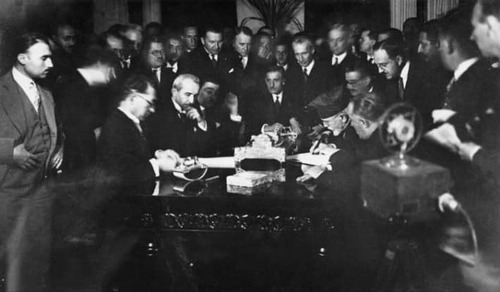
2. The meeting of the British and the Kemalists
At the beginning a high-level meeting between "Curzon" the British representative and Esmat Inounu, the main member of the TBMM in the Lausanne conference.
Even if there were no discussion on the matter of the Kurds when they had discussed Mosul Province and the minority's rights, the right of the Kurdish people must have been discussed. However, the misleading slogan of the Turks, "Turks and Kurds are together" would have been mentioned by the Turks.
In order to mislead the Lausanne members, Esmat Inounu would constantly talk about the unification of Kurds and Turks.
He had always talked against Lord Curzon's words about Kurds. Two years later in 1925, however, during the revolution of Sheikh Sa'eed, they said that Turkey is only inhabited by the Turks and only Turks can claim their national rights. As is known this conference began on October 11th, 1922, and ended on February 4th, 1923 and the Turkish delegation returned to Ankara. Later on February 17th, 1923, the Izmir Economic Congress was established while accepting capitalism, and many privileges were granted to the foreign economic powers.
On April 1st, 1923 the first council which was still a Democratic one dissolved and the second council began to work so that they would vote for the Lausanne agreement. This conference held once more on April 23rd, 1923 ended with an agreement on July, 24th. 1923. This agreement was approved by the members of the second council who were appointed by Mustafa Kemal. A little information about these meetings which were held during three months (from April 23rd, 1923 to July 24th, 1923) was presented to the public. In addition, we do not have any information about the meetings between the Turks and the English from February 1923 to April 23rd, 1923. The main question is how the Turks and the English who were enemies and Inounu and Curzon who were talking harshly to each other in the conference reached peace. It is obvious that the first agreement on the Kurds' situation and the problem of Mosul (which was postponed for a while) was about national ideology. Why is it that there is a clause in the Treaty of Siver that the position of Kurdish people would be stable if the situation got better, was not included in the Lausanne Agreement?
About this subject, it can be said that: at that time Iraq was made of three provinces of Mosul, Baghdad, and Basra.
Mosul Province included the Kurdistan region, Hewler (Erbil), Suleimani, Duhok, Kirkuk from Shengal (Sinjar) to Khanaqin and all those areas that were separated from Kurdistan.
Great Britain wanted to attach Mosul to the newly established Iraq because in 1908 oil was discovered in Kirkuk and the crude oil was very important to the British industry.
Mustafa Kemal also said: "Our ancestors have ruled over this region for over 400 years, this is our region, it belongs to Turkey" and this was against British plans.
In this case, a political and diplomatic crisis happened between Mustafa Kemal and the English. However, this political crisis was solved diplomatically in 1923.
Perhaps Mustafa Kemal had said this to the British: We will withdraw from Mosul but you must not fulfill any requests from the Kurds on their autonomy and governance.
This is an important point that Great Britain from Botswana to Ghana, from India to Kenya managed all their colonies by establishing an independent government.
In this respect, the British management of their colonies is different from the way the French did it.
The only colonial region in which Britain did not establish an independent government was Kurdistan. In my opinion, this was done as a response to Mustafa Kemal's request.
Administration of the Kurdistan Region of Iraq "the Kurdistan Regional Government of Iraq"
In 2003, the US had military intervention in Iraq which led to a new constitution in Iraq in 2005. According to the new constitution of 2005, the Regional Kurdistan of Iraq was established. Today the regional Kurdistan of Iraq has a government. However, it is not enough until Kurds have a representative in international organizations such as the UN or the Islamic Conference. In such organizations, only the states that are known can have a representative. Thus, it is important for this governmental institution to turn into a state. All the conditions for such changes are available. It also gained people's vote up to 90% to do so in a referendum.
*
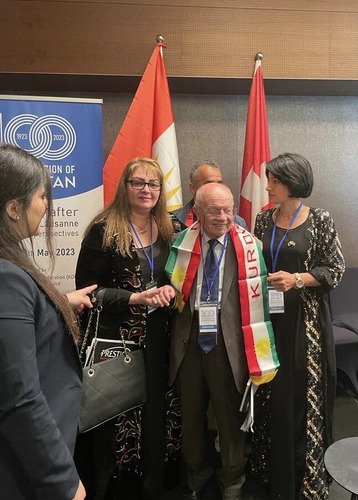
When Kurds talk about the state, a group of them have the notion that the state is not a good thing and the Kurds do not need it.
This is not a Kurdish notion. It is the notion of Turkey, Iraq, Iran, and Syria or the notion of a party that wishes Kurds to stay a colony forever.
When another state expresses such notions for Kurds, it is not to the Kurds' advantage but to those states' advantage.
As long as there is no state, there are no achievements, no political will or organization. Such nations cannot even have their own museum or a cemetery.
We must know that in the Southern part of Kurdistan, all these establishments only make sense as long as the Regional Government of Kurdistan stays active and the Kurds are running the institutions.
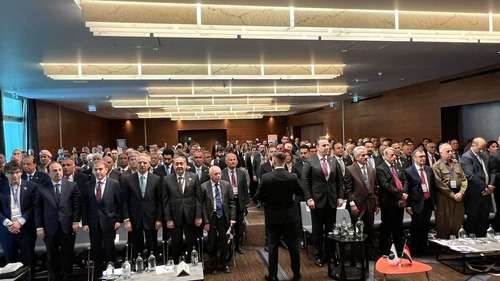
Conclusion and Request
A hundred years ago in 1923 after signing the Agreement of Lausanne, a historical injustice and cruelty against the Kurds were made and the Kurdish nation became one of the largest stateless nations in the world.
Kurdistan was divided and became a colony for other states. Although it is impossible to undo what has been done, today in this era, the international society and the UN are obliged to do something for Kurds.
The Northern part of Kurdistan is under Turkey's authority, the eastern part of Kurdistan is ruled by Iran, the Western part of Kurdistan is under Syria's authority and the Kurds in the Caucasus are under Azerbaijan and Armenia authority without any national rights.
As it is known the South part of Kurdistan which is still under the authority of Iraq has the right to claim Federalism. It is very important that the South part of Kurdistan soon begins to work for the Federation and the South West must gain independence.
What is going on in the southwest of Kurdistan which is partly under Syrian control and partly under Turkish control is an unknown situation.
The eastern part of Kurdistan is under the authority of Iran, and the Islamic government is executing Kurdish youths daily.
In the Northern part of Kurdistan where the majority of the Kurds are living, they have to continually revolt to gain their national and democratic rights.
We know that the role of the international community at that time (the People's Assembly) and the Agreement of Lausanne are the main reasons for the situation of Kurds now.
Kurds who are revolting in all five parts, want to persuade the international organizations to see their situation. This is the international society's loan to the Kurds and the world must repay the Kurds.
(*) Our meeting with Jalal Tamal had a great influence on preparing this interview. We thank Jalal Tamal.
(**) This statement that was presented to the "Conference of One Hundred Treaty of Lausanne" on 17 and 18 May 2023 by the Kurdish Diaspora Center was organized in Lausanne, Switzerland.
